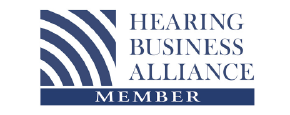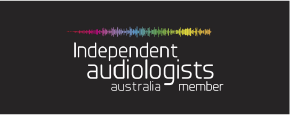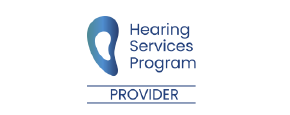Are you looking for a hearing test in Griffin?
Are you having difficulty communicating? Our expert audiologists at Hearing Help can help improve your hearing clarity. Book your consultation today and reconnect with the sounds and people you love!
Hearing Test in Griffin Brisbane
Are you looking for Hearing Test in Griffin Brisbane? We are conveniently located within the Newport Physio and Health clinic at Newport Marketplace. Our team of qualified audiologists provides comprehensive hearing tests to diagnose and treat hearing loss, tinnitus, and ear disorders. Utilising state-of-the-art technology, we deliver personalised patient-centred care. Our hearing tests assess the auditory system, determining the presence, degree, and type of hearing loss. We conduct various tests, including pure-tone audiometry and speech audiometry. If you’re concerned about your hearing, our experienced audiologists are here to help. By understanding the importance of hearing health and our comprehensive testing process, you’ll be better equipped to take control of your hearing and overall well-being.
About Hearing Help
Hearing Help is a reputed audiology clinic dedicated to providing comprehensive hearing healthcare solutions to individuals in Griffin Brisbane and surrounding communities. Our mission is to enhance the quality of life for those affected by hearing loss, tinnitus, and other ear-related disorders. With a team of experienced audiologists and hearing specialists, we strive to deliver personalised care that caters to the unique needs of each patient.

At Hearing Help, we understand the importance of accurate diagnosis and effective treatment. Our state-of-the-art clinic is equipped with the latest technology and equipment, allowing us to conduct comprehensive hearing assessments, hearing aid fittings, and other specialised services. We also offer a range of hearing devices and accessories from leading manufacturers, ensuring that our patients have access to the best possible solutions. With a focus on patient-centered care, we aim to empower individuals to take control of their hearing health and improve their overall well-being. By providing education, support, and ongoing care, we help our patients achieve optimal hearing outcomes and a better quality of life.
Why Choose Hearing Help?
Hearing Help provides comprehensive hearing services, including hearing tests, tinnitus assessments, and hearing aid fittings, to the people in and around Griffin and Newport, Brisbane. Their commitment to client-centred care, combined with the expertise of their experienced Audiologist, ensures that clients receive high-quality personalised attention.
Importance of hearing health and regular hearing tests
Maintaining good hearing health is crucial for overall well-being and quality of life. Regular hearing tests play a vital role in detecting hearing problems early on, allowing for timely intervention and prevention of further damage. Untreated hearing loss can lead to social isolation, decreased cognitive function, and even contribute to conditions such as depression and dementia. Furthermore, hearing tests can also identify potential underlying health issues, such as cardiovascular disease, diabetes, or otosclerosis. By incorporating regular hearing tests into one’s healthcare routine, individuals can ensure they receive prompt treatment and make informed decisions about their hearing health, ultimately enhancing their overall health and happiness.
What is a Hearing Test?
Typically, a comprehensive audiological evaluation, commonly referred to as a hearing test, is a series of assessments used to evaluate an individual’s auditory system and detect any potential hearing problems. The primary purpose of a hearing test is to determine the presence, degree, and type of hearing loss an individual may be experiencing. This information is essential for hearing healthcare professionals to identify the most effective course of treatment and recommend appropriate interventions.
A hearing test is usually conducted by a qualified audiologist or hearing specialist in a soundproof room or quiet environment. During the evaluation, the individual’s hearing thresholds, middle ear function, and speech processing abilities are assessed. The test results are then used to create a personalised hearing profile, outlining the individual’s hearing strengths and weaknesses. By understanding the specifics of an individual’s hearing, hearing healthcare professionals can provide tailored guidance, support, and treatment options to address any hearing-related concerns and improve overall communication and quality of life.
Types of Hearing Tests
To accurately diagnose and treat hearing loss, a variety of specialised assessments are used, each designed to evaluate specific aspects of an individual’s auditory system, including tests of pure-tone threshold, speech recognition, middle ear function, and other advanced diagnostic procedures.
Pure-tone audiometry is a fundamental assessment that measures an individual’s ability to detect tones of varying frequencies. Speech audiometry, on the other hand, evaluates one’s capacity to comprehend and repeat words. Middle ear function tests, such as tympanometry, examine the mobility of the eardrum and middle ear bones. Advanced diagnostic procedures include otoacoustic emissions testing, which gauges the response of the inner ear to sound, and auditory brainstem response testing, which assesses the auditory pathways in the brain. Additionally, specialised tests such as speech-in-noise tests and auditory processing assessments may be utilised to further investigate specific auditory deficits. Each of these assessments provides valuable information to diagnose and manage hearing loss effectively. By employing a battery of tests, audiologists can obtain a comprehensive understanding of an individual’s auditory capabilities.
Preparing for Your Hearing Test
To ensure a smooth and effective hearing test experience, it is essential to be prepared and know what to expect. From arrival to completion, a typical hearing test involves a series of evaluations and assessments that help audiologists understand your hearing health. In this section, we will outline the process, duration, and provide valuable tips to help you prepare for your hearing test in Brisbane.
What to Expect
Your hearing test at our hearing clinic will begin with a thorough consultation to discuss your hearing concerns and medical history. This is an essential step, as it allows our audiologists to understand the specific issues you are experiencing and tailor the test to your unique needs. It is recommended that you compile a list of questions and concerns to discuss during this consultation, ensuring that you receive comprehensive advice.
During the consultation, you will be asked questions about your hearing difficulties, such as when they began, and how they affect your daily life. Our audiologists will also inquire about your medical history, including any previous hearing tests, ear surgeries, or relevant medical conditions. This information will enable us to provide a more accurate diagnosis and personalised treatment plan. By being open and honest about your hearing concerns, you can be assured of receiving the most effective care.
Description of the process from arrival to completion
Upon arriving at our hearing clinic, a comprehensive and streamlined process will be set in motion to ensure that your hearing test is conducted efficiently and with minimal delay. Our friendly reception staff will greet you and confirm your appointment details. You will then be asked to complete a brief questionnaire to provide us with some additional information about your hearing and medical history.
Once you have completed the questionnaire, one of our experienced audiologists will escort you to a state-of-the-art testing room. They will then explain the hearing test process in detail and answer any questions you may have. The audiologist will also examine your ears using an otoscope to check for any visible signs of earwax or other obstructions that may affect the test results.
We will then proceed with the hearing test, using specialised equipment to assess your hearing thresholds and identify any potential hearing issues. Our goal is to ensure that you feel comfortable and informed throughout the entire process.
Duration of a typical hearing test
A typical hearing test at our hearing clinic takes approximately 30-60 minutes to complete, depending on the complexity of the assessment and the individual’s specific needs. This duration allows our experienced audiologists to conduct a comprehensive evaluation of an individual’s hearing abilities, including pure-tone audiometry, speech audiometry, and tympanometry. The test duration may vary if additional assessments, such as otoacoustic emission testing or auditory brainstem response testing, are required.
During the test, our audiologists will also take the time to discuss an individual’s medical history, hearing concerns, and lifestyle factors that may impact their hearing. This information is essential in providing personalised recommendations for hearing management and treatment. Our goal is to ensure that each individual receives a thorough and accurate assessment of their hearing abilities, and we allocate sufficient time to achieve this goal. By doing so, we can provide the best possible outcomes for our patients.
Tips for preparing for a hearing test
Before arriving at our hearing clinic, several steps can be taken to prepare for a hearing test, ensuring the most accurate results and a productive consultation with our experienced audiologists. Firstly, it is essential to provide a comprehensive medical history, including any previous hearing problems, ear surgeries, or allergies. This information will help our audiologists tailor the test to your specific needs.
To ensure accurate results, avoid exposure to loud noises for at least 48 hours prior to the test. Additionally, refrain from putting any objects, such as cotton swabs, into your ears, as this can push earwax further into the canal and affect test results. On the day of the test, arrive a few minutes early to complete any necessary paperwork and get settled. Finally, come prepared with any questions or concerns you may have, as our audiologists are here to address them and provide personalised advice on maintaining good hearing health. By following these simple steps, you can ensure that your hearing test at our hearing clinic is both productive and effective.
The Hearing Test Procedure
The hearing test procedure at our hearing clinic is a thorough and comprehensive process designed to assess an individual’s hearing abilities. The process begins with an initial consultation, where patients discuss their symptoms and medical history with a qualified audiologist to identify potential causes of their hearing concerns. Through this discussion, our audiologists can tailor the hearing test to address the patient’s specific needs and provide accurate results.
Initial Consultation
Conducting a thorough hearing test procedure begins with an initial consultation, where one of our experienced audiologists gathers information about your hearing concerns and any symptoms you may be experiencing. This consultation is an essential step in understanding your unique situation and identifying the most effective course of action for assessing your hearing.
During the initial consultation, our audiologist will introduce themselves, explain the testing process, and address any questions or concerns you may have. They will also provide you with an overview of what to expect during the hearing test procedure, including the different types of tests that will be conducted and the equipment used. This is an opportunity for you to become familiar with the testing environment and understand the objectives of the assessment.
The initial consultation is also a chance for our audiologist to establish a rapport with you, making you feel comfortable and at ease throughout the testing process. By building trust and open communication, we can ensure that you receive the most accurate and effective hearing assessment possible, leading to a more precise diagnosis and treatment plan. This consultation typically takes around 10-15 minutes.
Discussion with an audiologist about symptoms and medical history
Following the initial consultation, a comprehensive discussion with our experienced audiologist will typically ensue, focusing on your specific symptoms and medical history to gain a deeper understanding of your hearing concerns. This discussion is a crucial aspect of the hearing test procedure, as it provides the audiologist with valuable information to inform the assessment process. You will be asked to share details about your hearing difficulties, such as when you first noticed them, the types of situations where you experience difficulty, and whether you have any underlying medical conditions that may impact your hearing.
Additionally, the audiologist will inquire about your medical history to identify potential contributing factors or comorbidities that could affect your hearing. This may include questions about your family’s medical history, previous ear infections or injuries, and use of certain medications. This detailed discussion allows the audiologist to tailor the assessment process to your unique needs and concerns, ensuring that the tests and evaluation are accurate and comprehensive.
Conducting the Tests
Several specialised tests will be administered by the audiologist to assess various aspects of your hearing, including the softest sounds you can detect, your ability to understand speech, and the function of your middle ear. The first test is pure-tone audiometry, where you will be seated in a soundproof room and asked to wear headphones. The audiologist will then play a series of sounds through the headphones, and you will be required to indicate when you can hear each sound.
The next test is speech audiometry, which involves listening to spoken words and repeating them back to the audiologist. This test assesses your ability to understand speech in quiet and noisy environments. Additional tests may include tympanometry to evaluate the function of your middle ear, and acoustic reflex testing to assess the reflexes of your middle ear muscles. These tests provide a comprehensive picture of your hearing abilities and help the audiologist diagnose any hearing-related issues. The entire testing process typically takes around 30-60 minutes.
Post-Test Consultation
Following the completion of the hearing test, a post-test consultation is conducted to discuss the results and outline the next steps. During this consultation, the audiologist will provide personalised treatment options and recommendations tailored to the individual’s specific hearing needs. The consultant will also schedule follow-up appointments as necessary to monitor progress and make any necessary adjustments to the treatment plan.
Treatment Options and Recommendations
Based on the results of the comprehensive hearing test, a range of tailored treatment options are discussed with the patient during the post-test consultation. The audiologist will provide a comprehensive overview of the patient’s hearing health, highlighting any areas of concern and potential causes of hearing loss. Treatment options may include hearing aids, cochlear implants, assistive listening devices, or aural rehabilitation programs.
Recommendations will be made taking into account the patient’s specific needs, lifestyle, and budget. For those who require hearing aids, the audiologist will discuss various options, such as custom-fit in-the-ear models or behind-the-ear styles. They will also provide guidance on selecting the most suitable device features, such as noise reduction and directionality.
The audiologist will also educate the patient on proper hearing device maintenance, care, and usage. Additionally, strategies for improving communication in daily life, such as speechreading and communication therapy, may be discussed. By working closely with the patient, the audiologist aims to develop a personalised treatment plan that addresses their unique hearing health needs and enhances their quality of life.
Scheduling Follow-Up Appointments
Once a treatment plan has been established, the audiologist will schedule follow-up appointments as needed to monitor the patient’s progress, make any necessary adjustments to their treatment, and ensure they are adapting successfully to their new hearing devices or strategies. These appointments are crucial in determining the effectiveness of the treatment and making any necessary changes to optimise the patient’s hearing outcomes.
During follow-up appointments, the audiologist may perform additional hearing tests or assessments to evaluate the patient’s progress and adjust their treatment plan accordingly. They may also provide further guidance on using and maintaining hearing devices, address any concerns or questions the patient may have, and offer support and counseling to help them adapt to their new hearing situation. By scheduling regular follow-up appointments, patients can ensure they receive ongoing support and care, achieving the best possible outcomes from their hearing treatment. This collaborative approach enables patients to achieve optimal hearing health and improve their overall quality of life.
Book an appointment
Ready to hear the world more clearly? Contact Hearing Help today to schedule your personalised hearing consultation. Call us or visit our website to find your path to better hearing. We’re here to help you connect with every sound life has to offer.
Address: Newport Marketplace Shopping Centre
Tenancy M01, 10 Lakeview Promenade, Newport QLD 4020
(located inside Newport Physio rooms)
Phone: 07 3214 3641
Email: hello@hearinghelpredcliffe.com.au










